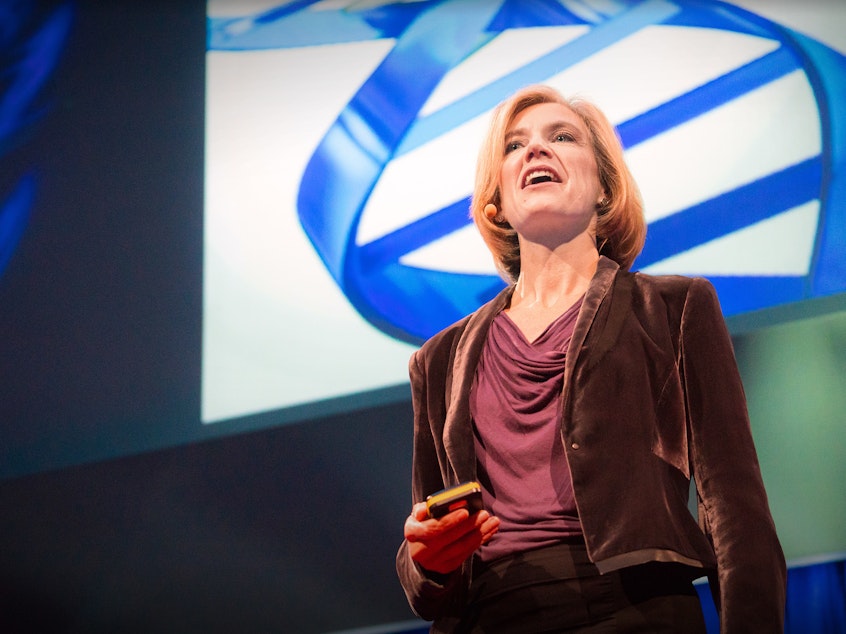Jennifer Doudna: What does CRISPR mean for the future of human evolution?

Part 1 of TED Radio Hour episode Reshaping Evolution
In 2011, biochemist Jennifer Doudna helped discover the genetic editing tool CRISPR. Today CRISPR is actively deployed in clinical trials with the potential to cure disease—and alter human evolution.
About Jennifer Doudna
Jennifer Doudna is a biochemist at the University of California, Berkeley and a Nobel Laureate in Chemistry. She is the co-inventor of CRISPR technology. Previously, she was a professor at Yale University.
Doudna has received numerous awards for her work, including the Breakthrough Prize in Life Sciences, the Japan Prize, the Kavli Prize, the LUI Che Woo Welfare Betterment Prize, and the Wolf Prize in Medicine. Doudna's work led TIME to recognize her as one of the "100 Most Influential People" in 2015, and she was a runner-up for "Person of the Year" in 2016. She is the co-author of the book A Crack in Creation.
Sponsored
Doudna earned her bachelor's degree in chemistry from Pomona College and her PhD in biological chemistry and molecular pharmacology from Harvard Medical School.
This segment of TED Radio Hour was produced by Rachel Faulkner and edited by Sanaz Meshkinpour. You can follow us on Twitter @TEDRadioHour and email us at TEDRadio@npr.org. [Copyright 2022 NPR]


